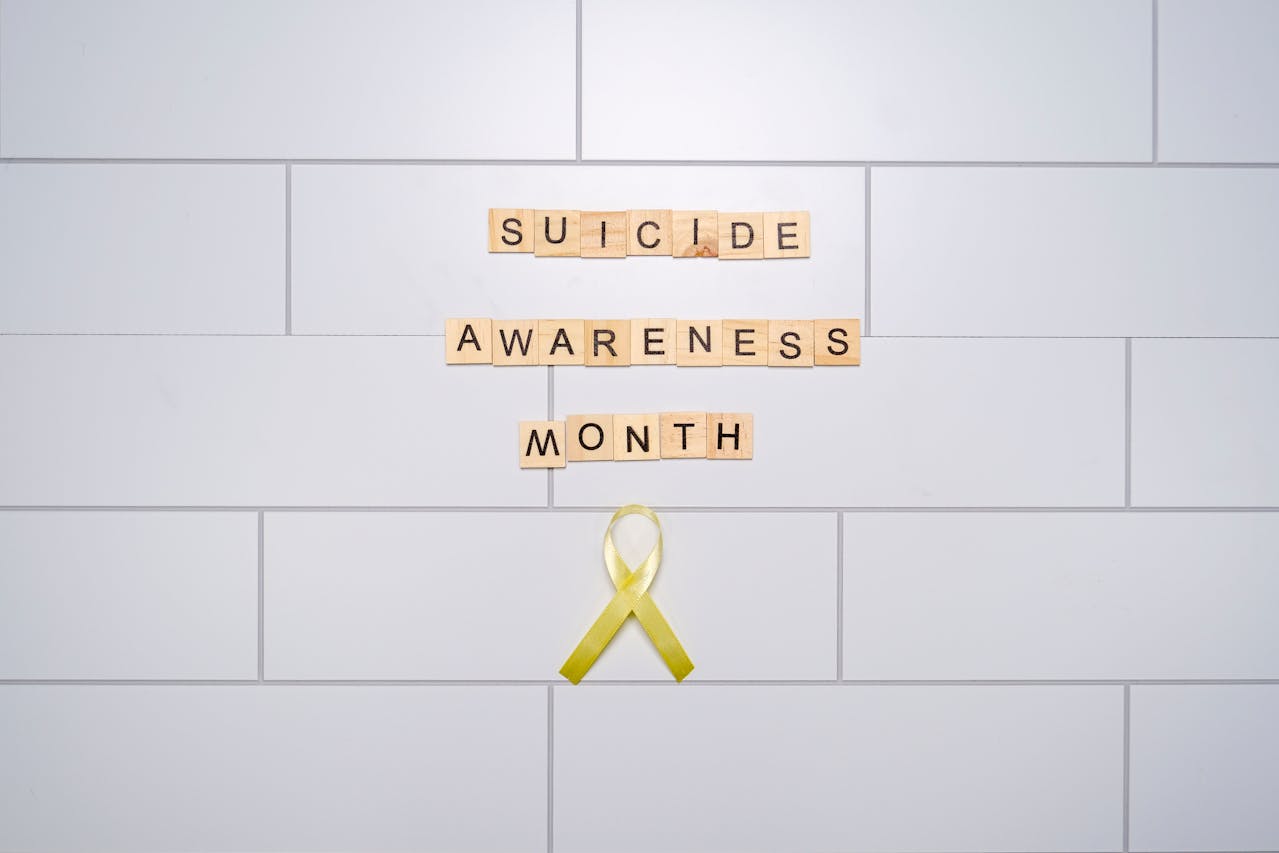Yet for many people, the pressures of the workplace have become so overwhelming that they feel crushed under the weight of expectations, deadlines, and toxic cultures.
Behind polite smiles and professional masks, countless employees are silently battling despair, burnout, and thoughts of giving up altogether.
If you’ve ever found yourself dreading the workday, feeling invisible no matter how much effort you put in, or questioning whether it’s even worth going on, you are not alone.
The truth is painful but important: no job is worth your life.
This article unpacks the silent crisis of workplace suicide, meeting you where you may be struggling, with stress, invisibility, shame, and hopelessness, and offering ways to reclaim your well-being before work costs you everything.
Recognizing When Stress Becomes Too Much

Stress at work can feel like an unavoidable part of adulthood, but there's a tipping point where it stops being normal and becomes dangerous.
Many employees push through because everyone is tired, yet the silence often hides something more serious.
When workplace stress becomes chronic, your body remains in a state of fight-or-flight activation, continuously releasing cortisol and adrenaline.
This biological response was designed for short-term threats, not the sustained pressure of modern work environments.
Research shows that chronic stress rewires your brain, shrinking the prefrontal cortex (responsible for decision-making) while enlarging the amygdala (your fear center).
This neurological shift explains why everything feels more threatening and decision-making becomes harder when you're overwhelmed.
Warning signs your stress may be crossing the line:
- Constant exhaustion even after rest (adrenal fatigue from sustained cortisol production)
- Hopelessness about your future at work or in life (depression symptoms emerging)
- Feeling trapped with no way out of the job (learned helplessness developing)
- Emotional numbness, irritability, or frequent crying spells (emotional dysregulation from overloaded stress circuits)
Recognizing these signs early can be the first step toward protecting your well-being before it spirals into despair.
One of the most isolating parts of workplace distress is feeling like nobody notices or cares.
You may be meeting deadlines, smiling in meetings, and delivering results, yet inside, you're barely holding it together.
Many professionals develop sophisticated coping mechanisms that hide their distress, a phenomenon called "masking."
This is particularly common in high-achieving individuals who've learned that showing vulnerability is professionally dangerous.
Research from the Harvard Business Review shows that 76% of employees report feeling burnt out, yet 68% never discuss it with their managers, creating a epidemic of silent suffering.
When you're constantly performing okay, your brain expends enormous energy maintaining this facade.
Neuroscientist Dr. Amy Arnsten's research reveals that chronic stress impairs the prefrontal cortex's ability to regulate emotions, making it increasingly difficult to maintain professional composure.
This creates a vicious cycle: more energy spent on appearing fine, less energy available for actual coping.
The following table reveals workplace pressure and who it feels and how others see it.
| Workplace Pressure | How It Feels Internally | How Others Interpret It |
| Unrealistic deadlines | Panic, insomnia, self-doubt | You always deliver |
| Micromanagement | Feeling powerless, anxious | Your Boss is just detail-oriented |
| Lack of recognition | Emptiness, worthlessness | You're humble and fine |
| Constant availability | Resentment, burnout | You're committed |
Understanding this helps shift the blame from something's wrong with me to something's wrong with the system.
That realization is freeing, and the first step in choosing healthier responses.
James worked long hours in finance, convincing himself the high salary justified the toll. But when panic attacks began during meetings, and his doctor warned his health was deteriorating, James realized his job was costing him more than it paid. What would you have done if you were in James’s shoes?
Leaving a job often feels like the last thing you can do, especially if bills and family rely on you.
But sometimes staying becomes more dangerous than leaving. When chronically stressed, your brain's decision-making capacity becomes impaired.
The prefrontal cortex, responsible for executive function, goes offline under prolonged stress.
This neurobiological reality explains why leaving feels impossible, your brain literally can't process complex decisions effectively when overwhelmed.
Signs it may be time to walk away:
- Work anxiety spills into every area of your life (stress response generalization beyond workplace).
- You dread Mondays to the point of physical illness (anticipatory anxiety creating somatic symptoms).
- No effort to set boundaries reduces the stress (indicating systemic organizational toxicity).
- You're losing your sense of self or joy outside of work (identity erosion and anhedonia).
Sometimes the bravest thing you can do is admit: "This job is destroying me, and I need to protect myself."
Breaking the Shame Cycle: You're Not Weak for Struggling

Shame is one of the heaviest weights people carry when they're struggling at work.
Thoughts like "I should be stronger," or "Everyone else is coping, why can't I?" make the pain worse.
Shame activates the same brain regions as physical pain, according to neuroimaging studies.
When you feel ashamed of struggling, your brain processes this as a threat, triggering fight-or-flight response and flooding your system with stress hormones. This makes it even harder to think clearly or seek help.
Shame also activates the anterior cingulate cortex, the brain region associated with social rejection, creating profound isolation.
Research by sociologist Byung-Chul Han reveals how modern work culture promotes burnout society, where exhaustion is worn as a badge of honor.
This culture deliberately conflates human worth with productivity, making struggle feel like moral failure.
Understanding this systemic issue helps you recognize that your pain isn't personal weakness but a reasonable response to unreasonable conditions.
Why shame keeps you stuck:
- It convinces you that asking for help equals failure
- It isolates you from people who could support you
- It makes mental health struggles feel like personal flaws
- Feeling overwhelmed is a human response, not weakness
- Needing help is the same as seeing a doctor for any illness
- Speaking out may inspire others who are silently suffering
Self-compassion activates the caregiving system in your brain, releasing oxytocin and reducing cortisol levels, creating optimal conditions for healing and clear decision-making.
Choosing Life Beyond the Paycheck: Finding Hope and Support
It's easy to feel trapped when your job consumes you, but there are ways to reclaim your mental health without losing everything.
The first step is realizing your life and safety matter more than any title or paycheck.
Recovery from workplace trauma requires what psychologists call social scaffolding, a network of support that helps rebuild your capacity to cope.
Social support changes brain chemistry, increasing oxytocin and reducing inflammatory markers associated with chronic stress.
Practical ways to cope and find support are:
- Set small boundaries, like not checking emails after hours
- Talk to a trusted friend, therapist, or support group
- Use available resources such as Employee Assistance Programs (EAPs)
- Call a mental health hotline when in an immediate crisis
- Use grounding techniques like the 5-4-3-2-1 method during overwhelming moments or breathing techniques.
Hope doesn't erase struggle, but it reminds you that your story doesn't have to end with your job. Your life is bigger, brighter, and worth protecting, always.
Take the Next Step in Your Well-Being Journey

If you recognize yourself in these words, seeking professional counseling is one of the most powerful steps you can take.
Mental Health Wellness Kenya offers specialized counseling services for employees experiencing workplace trauma and burnout.
Our trained therapists understand the unique challenges of toxic work environments and can help you develop coping strategies, set healthy boundaries, and make clear-headed decisions about your career path.
Once you've begun your own healing journey, you might also consider suggesting workplace training to your employer.
Many organizations are unaware of how their culture affects employee mental health.
We provide evidence-based training programs for managers and teams, helping create psychologically safe environments where struggles can be addressed before they become crises.
Sometimes the change you need starts with you, but it doesn't have to end there.

